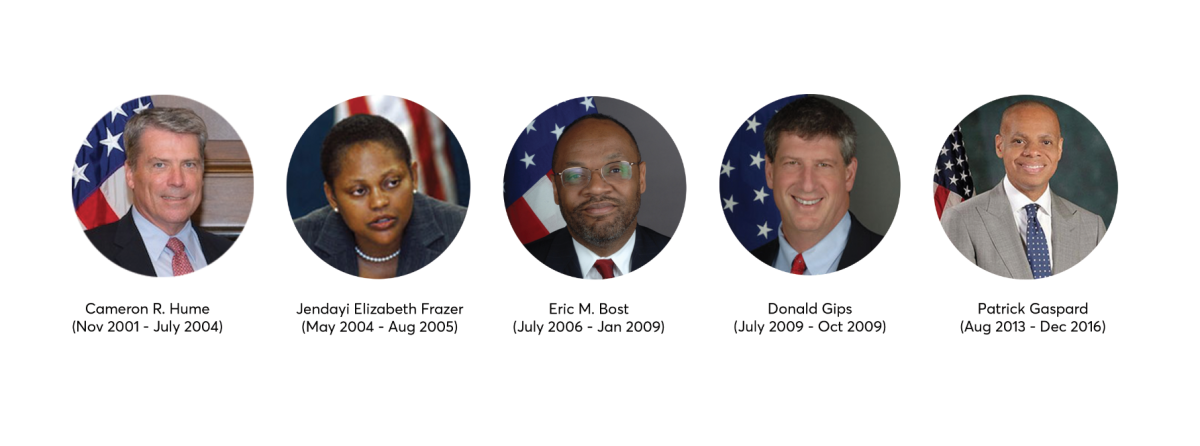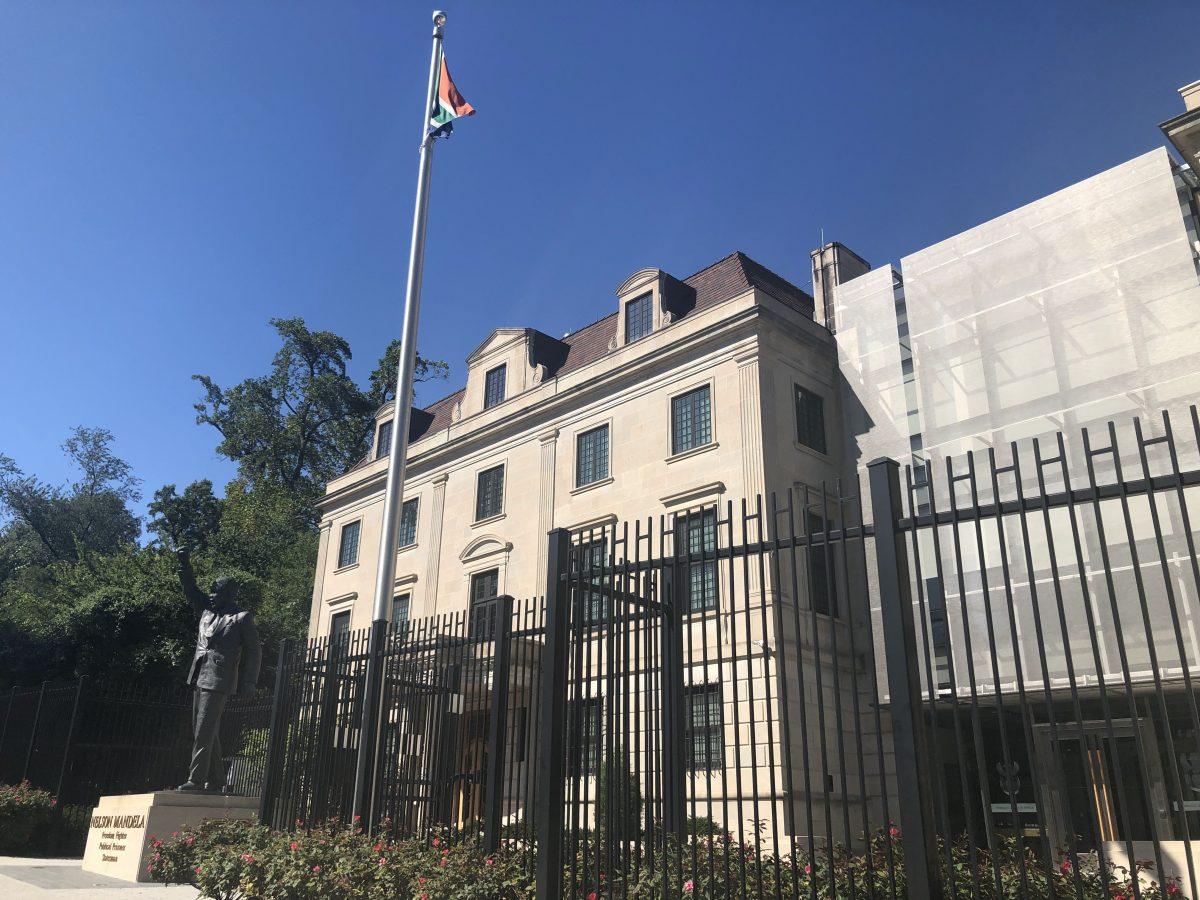Johannesburg, South Africa—After a vote last month in the Senate Foreign Relations Committee, only a full Senate vote stands in the way of a U.S. ambassador serving in South Africa after a two-and-a-half year vacancy.
President Donald Trump appointed Lana Marks, a South African-born fashion designer, to the post last November. On July 17, the Foreign Relations committee had their hearing for Marks’ nomination. Eight days later, the committee voted to move Marks’ nomination to a full Senate vote. The next opportunity for a vote will come in September when the Senate returns from summer recess.
Jessye Lapenn has served as chargé d’affaires or interim ambassador of South Africa since Patrick Gaspard left the ambassador post in December 2016. Lapenn is currently in the process of leaving to become the U.S. representative at the African Union.
At the U.S. Embassy in South Africa, work has continued unabated, according to a senior U.S. Embassy official. However, the official said not having an ambassador can have an effect on the amount of access the embassy has in-country.
“[A] chargé d’affaires doesn’t have the kind of weight a political appointee does,” the embassy official said.

For Suzanne Graham, Ph.D., professor and head of politics and international relations at the University of Johannesburg (UJ), such a long time without a formal ambassador doesn’t give the right impression to South Africa.
“You can only imagine that’s a reflection of the current [U.S.] government and what they think and feel about Africa, and South Africa in particular,” Graham said. “It doesn’t give a great impression.”
That is a sentiment echoed by South African officials who work directly with the U.S. embassy in South Africa.
“The fact that after two and a half years we still have not been appointed an ambassador sends an underlying message in my opinion, a very simple message, South Africa is not that important, South Africa has very little meaning to us,” said Nicholas Wolpe, CEO of Liliesleaf, an NGO that works with the U.S. Embassy.
Liliesleaf and other NGOs rely on the U.S. Embassy for funding for programs and as a gateway for improving the relationship between countries.
“The dynamics of the relationship between South Africa and America is wrapped up in a historical paradigm,” Wolpe said. “Unlike a lot of other countries, the history of this country is still a fundamental force in defining political and diplomatic relations. One cannot ignore those.”
U.S. officials in South Africa said they understand what is at stake.
“The risk of not having an ambassador for a prolonged time is the country not taking you seriously,” said a senior U.S. Embassy official.
[amcharts id=”chart-1″]
Map highlighting vacant U.S. Ambassador positions around the world. GRAPHIC: Luke Malanga ’20
With previous administrations, Graham said she had connections with U.S. ambassadors and was regularly invited to events hosted by the embassy. She also recalled a year when the U.S. ambassador came to speak to first-year students at UJ.
“That was great,” Graham said. “It felt very open, it felt very inclusive, and such a useful way to get to know something about a country. That’s what’s been lacking, and we’ve been really missing that.”
Penny Morris, a stakeholder relationship manager at Market Theatre Foundation, an NGO in Johannesburg, said the interaction with the embassy depends on what projects are happening at the time. Morris said it is important for there to be someone in the role of ambassador from a diplomatic point of view and to represent the U.S. abroad, but it’s not essential for the work the Market Theatre Foundation is doing.
“We usually interact with the mission staff and only interact with the ambassador at a high-level function,” Morris said. “Everything runs smoothly with the staff.”
Almost one third of the 177 U.S. ambassadorial positions around the world are vacant or awaiting U.S. Senate confirmation, according to the American Foreign Service Association.
Lisa Baglione, Ph.D., professor of political science at St. Joe’s, said typically the U.S. government wants officials confirmed and in their places quickly, but recent nominees are taking longer than usual to be confirmed. Baglione said that’s particularly abnormal given that President Trump’s Republican party controls the Senate.
“There are so many positions throughout the bureaucracy that are unstaffed right now, not only in the State Department or in the foreign affairs agencies but throughout the government,” Baglione said. “It’s a reflection of this distaste for government, and in many ways it’s a reflection of the distaste or the distrust of professionals and the undermining of the idea that there is such a thing as experts.”
Baglione described the role of an ambassador as a balance between providing insight and negotiating on behalf of the home country.
“When he or she is missing, you can’t staff the embassy appropriately, you can’t conduct relations with the home government appropriate, and two and a half years is a really long time to be without an ambassador,” Baglione said. “It shows that we don’t take a particular country very seriously.”
















































